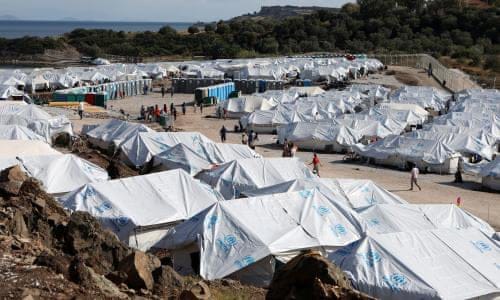By: Luqman Ahmad Khan
As migration and refugee crises reshape the global landscape, the need to address their causes, effects, and possible solutions has never been more urgent. From conflict and economic instability to climate change and political oppression, the forces driving millions from their homes continue to challenge governments, international organizations, and communities worldwide.
Causes of Migration and Refugee Crises
Conflict and Violence: Armed conflict remains one of the primary drivers of displacement. Wars and insurgencies across the Middle East, Africa, and Asia have uprooted millions. The Syrian Civil War alone has led to over 6 million refugees, many of whom have sought asylum in Europe. Individuals fleeing persecution from both regimes and non-state actors often seek safety in countries willing to offer protection from human rights abuses.
Economic Factors: Economic disparity and poverty compel people to leave their countries in search of employment, higher wages, and a stable living environment. For example, Central American migrants often make hazardous journeys to the United States, escaping extreme poverty, gang violence, and insufficient basic services.
Environmental Changes: Climate change is emerging as a major factor in forced migration. Floods, droughts, hurricanes, and rising sea levels disrupt communities and increase vulnerability. The Intergovernmental Panel on Climate Change (IPCC) estimates that by 2050, climate-related events may displace over 140 million people across regions like sub-Saharan Africa, South Asia, and Latin America.
Political Instability and Repression: Many leave authoritarian regimes or governments with limited personal freedoms to seek democratic participation and rights protection elsewhere. Migration is often the only option for those facing repression, political persecution, or human rights abuses.
Impacts of Migration and Refugee Crises
Social and Cultural Effects: Migration can foster cultural exchange and enrich societies, but it can also lead to challenges with integration and potential discrimination. Host communities may experience tension when navigating cultural differences, making the promotion of multiculturalism and social cohesion essential.
Economic Effects: Migrants often address labor shortages, especially in sectors like agriculture, bolstering the local economy. However, rapid increases in population can strain housing, healthcare, and public services if resources are insufficient.
Psychological Consequences: Displacement takes a psychological toll on migrants and refugees, leading to trauma, anxiety, and grief. The experience of fleeing conflict or persecution often results in prolonged uncertainty, making mental health support vital for their integration and well-being.
Political Ramifications: Migration often becomes a contentious political issue, influencing policy decisions and public opinion. Stricter immigration controls, at times, raise human rights concerns and fuel divisive narratives that may criminalize or stigmatize migrants.
Solutions to Mitigate Migration and Refugee Crises
International Cooperation: Migration is a global issue requiring cooperative efforts. Agreements such as the Global Compact for Safe, Orderly and Regular Migration and the Global Compact on Refugees offer frameworks for shared responsibilities and better resource allocation, especially in countries hosting large numbers of refugees.
Strengthening Local Communities: Programs that support language acquisition, job training, and community integration can help migrants adapt while promoting social cohesion in host communities. Investment in local infrastructure and services can benefit both residents and newcomers alike.
Addressing Root Causes: Stabilizing conflict zones, promoting economic growth, and combating climate change are essential to reducing forced migration. Initiatives such as sustainable agriculture projects and renewable energy investment aim to tackle environmental factors contributing to displacement.
Raising Advocacy and Awareness: Building empathy through awareness campaigns can reduce xenophobia and foster solidarity. By engaging the media to highlight personal stories, host communities may better understand the challenges migrants face, helping to support more inclusive policies.
Legal Pathways for Migration: Establishing clear legal routes can regularize migration flows and protect migrants’ rights. Options like temporary work permits, family reunification programs, and humanitarian visas can reduce irregular migration and exploitation by traffickers.
Migration and refugee crises present complex, defining challenges for the modern world, calling for compassionate, cooperative, and sustainable solutions. Addressing root causes and fostering inclusivity can transform migration into a choice rather than a necessity. Recognizing the humanity of those on the move is key to creating a future where diverse populations contribute to resilient and cohesive societies.


